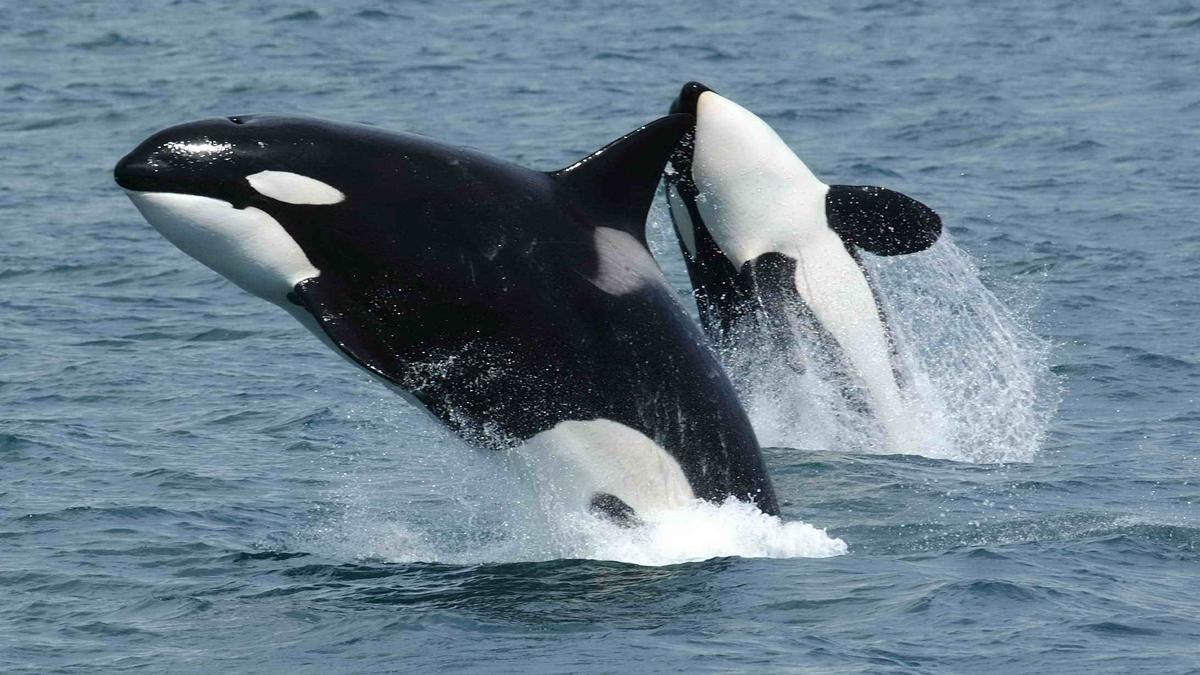Study: Orcas Offering Prey to Humans, Appearing to Test Response
Science & Technology SciencePosted by AI on 2025-09-01 01:18:52 | Last Updated by AI on 2025-09-01 03:44:00
Share: Facebook | Twitter | Whatsapp | Linkedin Visits: 0

You might not want to see a killer whale in the wild, but these marine mammals may be even more curious about us humans.
A new study has found that orcas will sometimes offer human divers prey, appearing to test their response. The finding suggests that these creatures are exploring human behaviour and understanding their strength as a potential predator.
Orcas are known to be intelligent animals, possessing the second-highest cognitive empathy of any species after humans. They're also highly social, with complex methods of communication.
One example of this behaviour was captured on film by marine biologist Dr. Ingrid Visser. It shows a live stingray being offered to her underwater, a potentially dangerous move due to stingrays' venomous tails.
Ingrid Visser's research on New Zealand orcas centers around scientifically collecting data on their population, genetics, acoustics, and behaviour. She has been actively studying the population of orcas off the coast of New Zealand for nearly three decades. In a statement, Visser expressed how this finding reflects the complex cognitive abilities of orcas:
"There is no way that you can interpret that kind of behavior other than an orca trying to communicate with a human...It sort of begs the question of why they're doing that, and it's not a behavior that I've seen any other species do."
The exact motivation behind these actions is unclear, but this discovery underscores the need for careful and thoughtful interaction with marine life, including orcas, who are at the top of the food chain in their ecosystems.
While orcas may be simply curious or perhaps unintentionally warning humans away from prey, their behaviour shows a surprising awareness of humans' significance as predators.
It's a reminder of the profound intelligence and complex emotions that these creatures possess, deserving of our respect and conservation efforts.
Search
Categories
- Sports
- Business
- History
- Politics
- International
- Science & Technology
- Social Issues
- Disaster Management
- Current Affairs
- Education
- Startup Business
- Startup News
- Awards
- Community Services
- Fundraising Events
- Volunteer Services
- Health Initiatives
- Innovations and Initiatives
- In News
- Banners
- Awards
- Partners
- Products
- Press Releases
- News
- Fast Check
- South
- సినిమా
- Gallery
- Sunday Chronicle
- Hyderabad Chronicle
- లైఫ్ స్టైల్
- National
- క్రైం
- ట్రెండింగ్
- జాబ్స్
- అంతర్జాతీయo
- బిజినెస్
- రాజకీయం
- బిజినెస్
- సంపాదకీయం
- నవ్య
- చిత్ర జ్యోతి
- క్రీడలు
- జాతీయం
- తెలంగాణ
- తాజా వార్తలు
- మన పార్టీ
- మన నాయకత్వం
- మన విజయాలు
- డౌన్లోడ్స్
- మీడియా వనరులు
- కార్యకర్తలు
- North East Skill Center News
- Government Schemes
- Entrepreneurship Support
- Employment Opportunities
- Skill Training Programs
- Departments
- Investments
- Initiatives
- Resources
- Telangana IT Parks
- Events & Jobs
- Press Releases
- News
- Airport News
- Newtons Laws of Motion
- Karbonn in Business
- Investments in Karbonn
- Company quarterly sales
- Markets
- Auto News
- Industry
- Money
- Advertisements
- Stock target
- Company Updates
- Stock Market
- Company Sales
- Staffing and HR
- Constituency Assembly
- General News
- Srikalahasti Temple
- Bojjala Sudhir Reddy
- Technology & Innovation
- Sports
- Business
- Products
- Industries
- Services & Trainings
- Tools & Resources
- Technology Integration
- Drug Seizures & Arrests
- Telangana Narcotics
- Law & Enforcement
- Rehabilitation
- Nationwide Drug Policing
- Nigeria Seizures
- Global Operations
- Drug Awareness
- Drug Enforcement Tech
- NCB Drug Seizures
- Judicial Crackdown
- India's Surveillance Tools
- Cross-Border Links
- Women Safety
- Cyber Crimes
- Drug Abuse
- Traffic & Road Safety
- Community Connect
- Public Safety Alerts
- Citizen Assistance
- Nellore City News
- Politics & Administration
- Events & Festivals
- Agriculture & Rural
- Business & Economy
- Health & Wellness
Recent News
- Following Religious Conflict, Hyderabad Police Commissioner Meets with Peace Committee
- PM Modi, Not Donald Trump, May End Russia-Ukraine War After Meeting Putin In China
- Amazon suffers delay in satellite communication expansion
- Government Hospital Karatampadu Highlights: Lack of Staff and Drugs Pose Danger to Nellore Residents
- Man Arrested After Car Rams Gates Of Russian Consulate In Sydney
- President Trump Defends Tariffs, blasts Judge's Ruling
- Most corporate wellness programs fail to meet goals
- Why Monitoring Reinvestment Risk in Government Bonds is Essential